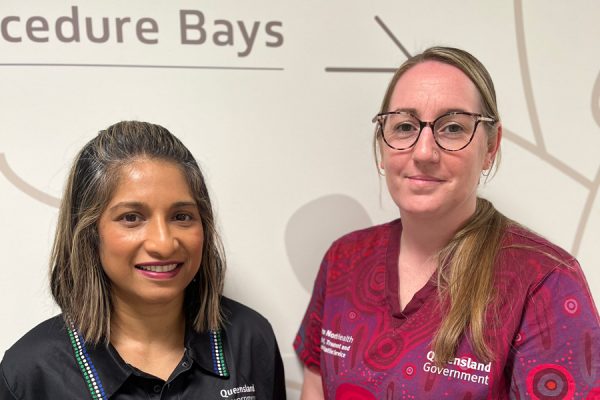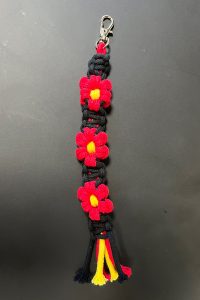Culturally sensitive endoscopy pathway piloted at STARS

Gastroenterology Department at STARS pilot a new endoscopy pathway for Aboriginal and Torres Strait Islander patients.
Aboriginal and Torres Strait Islander people are more heavily impacted by colorectal cancer compared to non-Indigenous Australians.
Aboriginal and Torres Strait Islander people are less likely to participate in the colorectal cancer screening program and more likely to be diagnosed at later stages, leading to poorer outcomes and survival rates.
The participation rate for the National Bowel Cancer Screening Program, for example, is only 35% for Indigenous Australians compared to 45% for non-Indigenous Australians.
To address these disparities the Gastroenterology Department at the Surgical, Treatment and Rehabilitation Service (STARS) recently piloted an endoscopy pathway specifically for Aboriginal and Torres Strait Islander patients, the first of its kind for Metro North.
Acting Director Gastroenterology, Enoka Gonsalkorala explains the initiative came about from clinicians wanting to make a real difference to Aboriginal and Torres Strait Islander healthcare.
“We hope that having dedicated pre-assessment clinics and men’s business and women’s business endoscopy procedure lists will not only provide culturally sensitive care, but importantly improve attendance at endoscopy
appointments,” Enoka said.

macrame gift given to patients
“Aboriginal and Torres Strait Islander people often feel more comfortable talking to someone of the same gender when it comes to health matters.
“In preparation many of our staff have also undergone additional cultural awareness training.”
Indigenous Liaison Officer Lyn Bell was on hand on the day to talk to patients and give them a thank-you gift.
“The feedback from patients was very positive. From the moment a patient checked in at reception to post procedure, each person was treated with respect and dignity. All the staff worked together as a team to alleviate any concerns the patients may have had,” Lyn said.
“Patients were also given an Aboriginal or Torres Strait Islander macrame key chain which was made by a member of the public to celebrate this pilot initiative.”
Patient Gary was very impressed by the new pathway.
“Lyn called me about the appointment. Having someone from my mob contact me was very welcomingly,” Gary said.
“I think having Aboriginal and Torres Strait Islander endoscopy lists will make a real difference in getting people in here initially.
“I am really proud that this service is in Brisbane.”
Following the pilot, the Aboriginal and Torres Strait Islander specific endoscopy lists will be held on a permanent basis, starting in January 2025.
The new pathway is a first step in a broader effort to partner with community-based primary health networks to improve colorectal cancer screening and improve health equity for Aboriginal and Torres Strait Islander health.
The initiative is an example of Metro North’s commitment to drive health equity by increasing access to health care that is culturally safe and responsive, as detailed in Metro North’s Health Equity Strategy 2022-2025.
